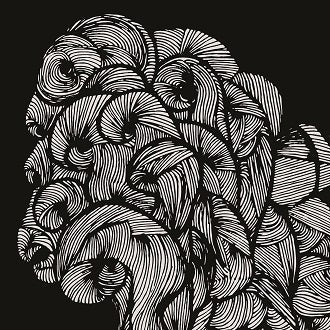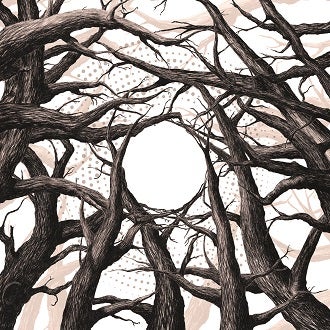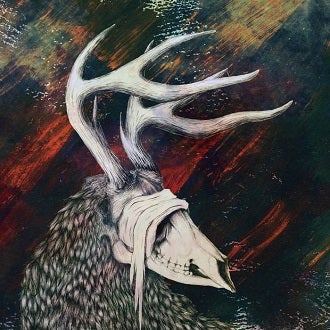You'd be forgiven for struggling to summarise the sound of Svalbard in a few words. Since forming in 2011, the band have had their hands in black metal, post-rock, d-beat, shoegaze, hardcore, and post-metal. Whilst their music stubbornly refuses to fit neatly into one genre, one word remains a fitting adjective for the British quartet: unique.
Svalbard spent their early years playing DIY shows, releasing 3 EPs and honing their sound, before eventually dropping their debut album One Day All This Will End in 2015. Since then, Svalbard gained the momentum of a runaway freight train, releasing two further albums whilst continuing to refine their vast array of musical influences; drawing from video game soundtracks, grindcore and dream pop all buried within a distorted yet dynamic sound.
But they're not just heavy in the musical sense of the word. No one articulates the reality of mental illness as succinctly as Svalbard. With 2020's When I Die Will I Get Better the band cut so deep both musically and lyrically that it raised the questions: where can Svalbard possibly go from here? How do you follow up an album created at the darkest point of your life?
If this were a Disney movie, this would be the point where we say that new record The Weight of the Mask is the light piercing through the dark clouds, the hope returning into your heart, the promise of a happy ending… Well. It's not. The depression did not simply go away. It clinged like a limpet, it morphed over lockdown after lockdown, it grew into a beast. But it's a beast that Svalbard no longer fears. If the previous record was about facing your demons, then this album is about fighting them with everything you've got.
With a fourth album now under their belts, Svalbard are going from strength to strength - not just as one of the brightest sparks in metal and contemporaries of a burgeoning modern British metal scene, but as advocates for mental health.









